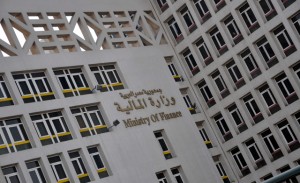
(Daily News Egypt)
By: Mahmoud Salah El-Din and Eslam Zayed
Officials from Egypt’s Ministry of Finance are set to review the final draft of Egypt’s economic reform programme set to precede the acceptance of the country’s pending $4.8bn International Monetary Fund (IMF) loan.
The country’s cabinet will discuss the draft next week, before sending a letter to the IMF to resume negotiations.
“We have not yet received a revised programme from the Egyptian authorities,” said IMF spokesperson Wafaa Amr. “However, when we do, we will begin reviewing it and will come up with ways to apply it to Egypt.”
This came amid comments made by Egypt’s minister of planning and international cooperation stating that an invitation had been extended to IMF representatives to visit Egypt.
IMF representatives stated that they hoped to apply this programme soon due to the urgent need to address Egypt’s financial and economic problems.
The new programme seeks to decrease the targeted amount of increased tax revenues from EGP 20bn to EGP 15bn, in addition to containing clauses dealing more strictly with subsidy reform.
It also includes clauses amending the new electricity prices set to take effect by July, maintaining the same price for buyers consuming less than 50 kilowatts a month, while using the increased revenues coming from those consuming more than this to improve the efficiency of distribution stations.
A timeline to reform a number of social welfare programmes such as pensions, healthcare, insurance and salaries, has also been detailed.
The programme is also largely in line with statements made by the government last year, looking to raise growth rates to 7%, and closing the budget deficit to within 5% by 2017.
It further seeks to limit fuel subsidies to EGP 10bn within the next five years, and to direct subsidies to those consumers living under the poverty line. The removal of subsidies for tourism, cars, private schools and diplomatic authorities, is also part of the programme.



